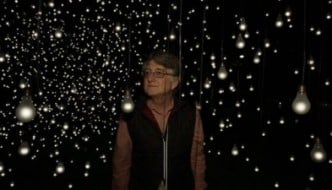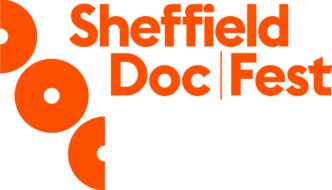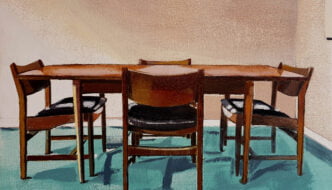TSOTA meets Sita Brand – Founder & Director of Settle Stories
November 10, 2014
Back in early October, the Settle Storytelling Festival once again descended upon the small rural town of Settle for a magical weekend of extraordinary stories, music, poetry, science, interactive workshops, arts, craft and creative ideas.
The festival brought over 50 artists from over 5 continents – including top storytellers and world-renowned authors and artists – to provoke, inspire and broaden horizons of adults and children alike.
Whilst Settle Stories spends the next couple of months clearing up and recovering from a successful festival, TSOTA caught up with Sita Brand, Founder and Director of Settle Stories, to discuss storytelling in the UK, plans for 2015 and how she came to develop the Company and the Festival, which has just celebrated its 5th year. This might just get you thinking about storytelling differently…
TSOTA: The Settle Storytelling Festival has been bringing storytellers to rural North Yorkshire for five years now. How did it come about?
SB: It was a bit of a whim, really, when I started. My first job when I left university was storytelling. I saw an article in The Stage for a storyteller and I thought, oh, I can do that! As you do. I went for the interview and got the job – so I spent several years wandering around as a storyteller at theatres, museums, et cetera. It was quite a hard way to make a living, so I ended up producing and acting, and all sorts of things. I used storytelling in different ways.
When I came up here to Settle, I decided I wanted to go back to something more traditional in terms of storytelling. I had used it in a business environment, in prisons, telling stories as I was teaching meditation – I used storytelling as a means of communicating. But I wanted to go back to just standing in front of an audience again. And how am I going to do that? ‘Well, I’ll set up a festival,’ I thought.
TSOTA: Literary festivals are popping up everywhere now, but you don’t hear so much about storytelling festivals.
SB: There are more than you’d think. The difference between other storytelling festivals and us is that we’ve been really big about communicating two things. One is that we’re doing a storytelling festival – so we’ve got much more press and media and a much higher profile than any other storytelling festival in England. The second is that we define storytelling more broadly. We have a digital storytelling class, we have had science lectures for the last two years, this year we had Mars applicants coming in to share their stories about Mars, et cetera.
Most other storytelling festivals – not all, but most – tend to look at legends and myths; what I call a campers’ festival, where you go to a field and there are some tents, and people sit around a fire and listen to stories or whatever… Whereas I was interested in how you can get people to think about stories and storytelling more broadly.
And that’s what makes us a bit different. We have a much more eclectic programme.
TSOTA: What sort of storytelling culture do you think we have in this country?
SB: That’s a hard question, and the reason why it’s hard is that I don’t know what we mean by storytelling culture. Do you mean ‘traditional’ storytelling culture where you go around schools and say ‘I’m a storyteller’ and tell a few fairytales?
If you look at storytelling more widely, we’re telling stories in a range of ways throughout our lives. You just have to look at an Android phone and it says: ‘What’s your story?’ On Google Plus, they’re asking you about your story. So when we talk about our storytelling culture, I can’t give you a definite answer, but it raises a lot of interesting questions, because we live in an environment that’s changing so much.

Settle Storytelling Festival
TSOTA: Do you think we struggle to find a place, sometimes, for storytelling? As you say, it’s hard to define.
SB: At one of the events at our festival, ‘We’re All Storytellers Now’, we had journalists, a marketeer, an academic, people talking about what ‘storytelling’ means – and I don’t think we know! It’s a very, very fashionable buzzword at the moment – but I don’t think we know what it means. There’s a huge movement in business storytelling, for instance.
TSOTA: What does that involve?
SB: A few weeks ago I was at a corporate event where I was telling stories for a massive pharmaceutical company, and I was telling folktales. They wanted to communicate particular things about the company, to do with team-building and this that and the other, and I told stories that illustrated these points. And at the end, at the plenary session, one person re-told one of the stories as an analogy for what’s going on in the NHS. I told a folktale! So we can talk about things more easily, sometimes, in the context of a folktale than we can by giving people bald facts.
TSOTA: The oral tradition is very adaptable.
SB: Yes, and it’s not just the oral tradition, it’s stories in particular. Take a story everyone knows, like Red Riding Hood, it’s about all sorts of things – it’s about facing your fears, it’s about sexuality, it’s about growing up, all that kind of thing. It’s a way of testing things out in the context of a story.
TSOTA: There’s a misconception that storytelling is for children.
SB: Our core audience are adults, not children.
TSOTA: Is there a difference between telling stories for children and telling stories for adults?
SB: Obviously the subject matter is different. But I personally think the performance style for adults is also fine for kids. It’s about the content and it’s about how you’re relating to people. I don’t think you need to talk down to kids.
TSOTA: What’s next for Settle Stories?
SB: It takes two months to clear up after the festival – and then we collapse! Then we’re going to be planning our events for next year.
We’re also looking at the archive, the WR Mitchell Archive [of oral histories from the Yorkshire Dales]. We’re going to be raising money and working on that, to save hundreds of Yorkshire stories and images. We’ll be launching a ‘Save Our Stories’ campaign to raise money to digitise the archive and make it accessible. The archive work is very much about preserving old stories and true-life, historical stories about a time gone by.
The festival is about bringing people together and using inventive and eclectic storytelling to empower people and communities. That is at the heart of what we do. We’re in an area of the country that’s very white, and we bring storytellers here from all over the world – and our storytellers go to other places, celebrating Yorkshire stories and sharing those. It’s a two-way thing.
TSOTA: Thanks Sita.
Richard Smyth
Visit www.settlestories.org.uk to read more about Sita, Settle Stories, the WR Mitchell Archive and watch this space for details of next year’s Festival…
Follow on Twitter @settlestories
UPCOMING SETTLE STORIES EVENTS:
Speaking with Confidence – 15th Nov 2014
Filed under: Theatre & Dance, Written & Spoken Word
Tagged with: festival, interview, settle stories



Comments